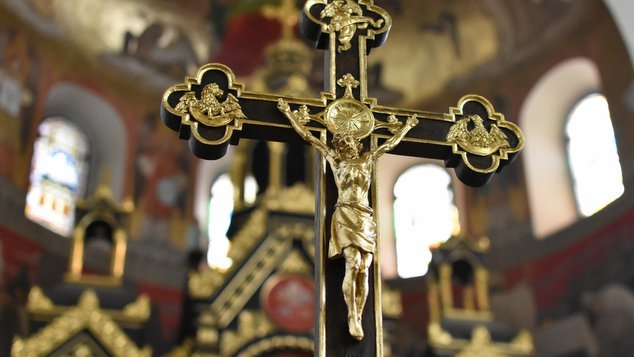
The Uniting Church appeared before the Joint Parliamentary Committee on Human Rights inquiry into the Religious Discrimination bill on Friday, voicing their opposition to the legislation in its current form.
Jason Masters, Co-convener of Uniting Network Australia, the LGBTIQA+ network within the church, said it was disappointing that during the long consultation process over the legislation there had been little formal consultation with LGBTIQA+ people of faith.
“The LGBTIQ community has never been listened to.” Masters said, listing previous inquiries, royal commissions and reports on a range of issues. Masters said he was afraid that the development of the current legislation was repeating that process.
“In this process, as one of the largest LGBTIQ+ communities of faith we have never been engaged by the government. I had one call from the Attorney General’s office with our first submission and it was an abusive call. Our voice, our reality, of what religion does and has done needs to be heard.” Masters said.
Masters told the committee that the call from the staffer was not scheduled and lasted for around 15 minutes. The call was made back when Christian Porter was the Attorney General.
Greens senator Janet Rice posted to Twitter describing the alleged behaviour from political staffer as “disgusting”, while Labor Senator Deborah O’Neill asked Masters for more information and said the claim was “disturbing” and “extraordinary” and amounted to “harassment and intimidation”.
Speaking at the inquiry Senator Rice said so much of the debate was set up as a false dichotomy of ‘God versus gays’.
Reverend Sharon Hollis, President of the Church, said the Uniting Church had been on a long journey and it had often been painful, especially for LGBTIQ+ members of the church, their friends and families.
“It is true, as a denomination we have come to the point where we believe that it is possible to maintain the integrity of your Christian faith and be gay or lesbian, or transgender, or bisexual, or intersex or any of those other things.” Reverend Hollis said.
In their submission the Uniting Church said there were provision in the bill that they believed could actually increase discrimination against people of minority faiths and people from more vulnerable groups within society.
Reverend Hollis said one of their concerns was the statement of belief provisions within the bill allows people to make statement that they hold to be true.
The religious leader said it was concerning that the bill only required the person making the statement to find one other person who shared their views and beliefs for it to be allowed under the proposed laws.
“Not tested by a religious community, not necessarily part of the broader suite of the beliefs of a religious community. We think puts at risk people particularly of other minority faiths, LGBTIQ people, women, people with disabilities and so on. It’s the very low standard for proving that statement that has us concerned.”
Reverend Hollis said that while the church was in favour of protections on the basis of religious belief the lack of rigor around what might constitute a statement of religious belief, and in what contexts, threaten people from minority or vulnerable groups.
Western Australian Liberal MP Celia Hammond said she wasn’t sure if the legislation required just one person to agree with the statement, but she said she would consult with the Attorney General’s department and ask them to clarify how the laws would operate.
When it came to the issue of discrimination against LGBTIQA+ students in religious based schools the representatives from the Uniting Church said they supported a model where schools were allowed to discriminate upon enrolment, with a clear and public statement, but once a student was enrolled they should no longer be able to discriminate on the basis of sexuality or gender identity.
“Once you’re enrolled you should be able to explore the range of your faith and your world view as an educational process.” Reverend Hollis told the committee. “In any good education system, exploring your worldview, your faith and all that you’re being taught should lead to question, to ask, to disagree and discern how you as a young adult… view the world.
“If we start to allow discrimination throughout the education process it actually hinders the capacity for students to engage fully in the education that they are meant to be getting.”
Elliot Nicholas from the Uniting Network Australia, shared his experience of attending a religious school. The 18-year-old said when he realised he was transgender school became very difficult and he experienced homophobic and transphobic comments from other students, and teachers failed to step in to stop the comments occurring.
Nicholas said he feared the proposed bill would allow people to discriminate against other people, but their motivations would not be based in the key tenets of their faith.
Graeme Watson
You can support our work by subscribing to our Patreon
or contributing to our GoFundMe campaign.




